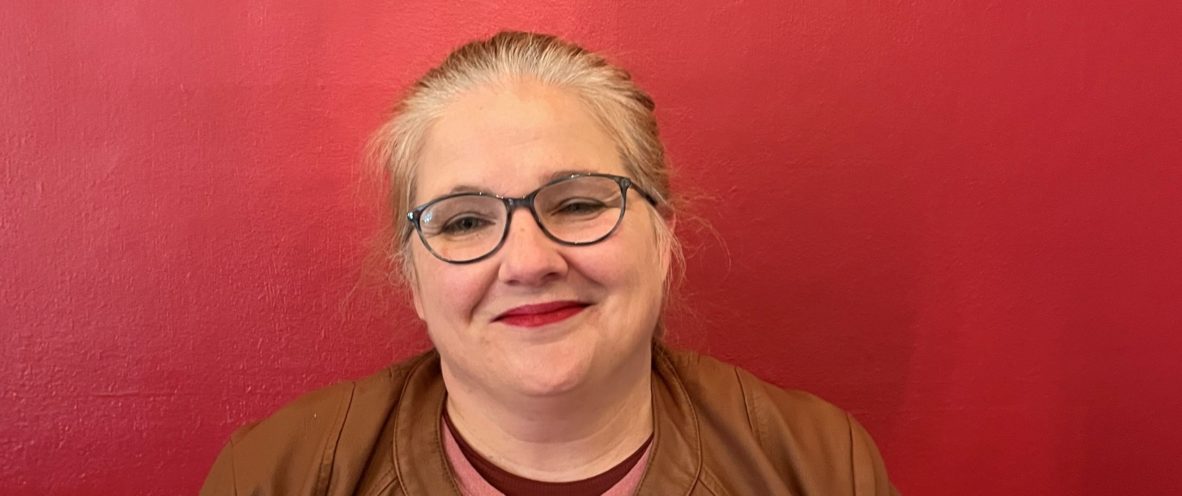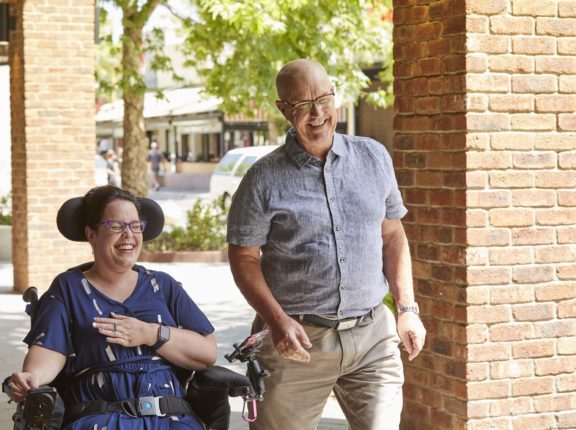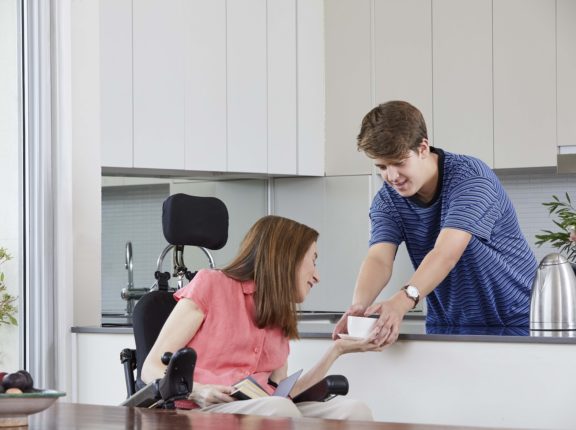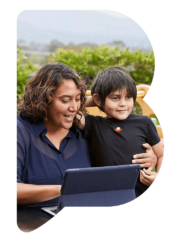Meet Sarah Sims – wife, mother, carer, and advocate for four fabulous Neurodiverse children.
When Sarah started her family fourteen years ago, she never imagined the rollercoaster ride that lay ahead. Since first becoming aware of the different way her children engaged with and responded to the world around them, Sarah has been on a journey of discovery. Her efforts to better understand her children have led her to better understand herself and recognise that she too experiences the world differently to others.
In the Sim household, Neurodiversity is a family affair!
We caught up with Sarah for a coffee and a chat earlier this month.
What do you mean by Neurodiversity?
“We think in a different way. Our brains are wired a little bit differently. For us, that means ADHD and Autism.”
The Caring Journey
Sarah began seeking answers in 2018 when her son, Alexander, was in Year One.
“He was returning home from school and coming completely off the rails. Everything that we were hearing about him at school was like ‘Oh everything is good; he’s had a great day’. But that’s not what was reflected in his behaviour when he got home. There was always a lot of emotion – he was always worked up and agitated.”
Sarah reflects that she had always found Alexander a challenge and had believed, like so many parents, that the fault lay with her.
“My tendency was to lay the blame at my own feet and think ‘I must not be parenting him properly’.”
Sarah began reading everything she could find that might shed some light on what might be going on for Alexander, and how she could help him.
“There was a lot of reading, and a lot of research and a lot of ‘what can I do better?’”
Convinced that Alexander had Autism Spectrum Disorder (ASD), Sarah initially struggled to get the school and medical fraternity to support a diagnosis.
“He was absolutely refusing to go to school in the morning and I remember having to lay him on the floor, in his pyjamas, in the office [at school], kicking and screaming, handing his uniform to the principal…It was hard. I honestly think if I knew then what I know now I would have handled that so differently because I think that was very traumatic for him.”
Eventually the school did take notice, and once they did, Sarah did not have to wait long for her suspicions to be confirmed, and by the middle of the year Alexander was diagnosed with Autism.
Alexander’s diagnosis was only the beginning. At around the same time Sarah began to be concerned about her oldest daughter Charlotte.
“I had long thought, since she was five, that she might have some form of ADHD – just based on reading that I’d done and hearing other people’s experiences and going ‘wow – that is just like her.’ When she started having problems in year seven, the learning support team at her school arranged an assessment for her. That process revealed that she had Autism and ADHD.”
Supporting Charlotte through this process was illuminating for Sarah.
“I kind of went ‘her experience in high school was pretty identical to mine’. I was really struggling with the juggle of four kids and two schools and trying to manage my own emotions. I said to my husband ‘I think it’s worth looking into me being assessed, because if it’s a possibility that I can have help for this and improve that part of my life, it’s only going to help our family, our home, run that much better. It’s only going to improve our lives.”
Sarah found a psychologist who could assess her to see if she too had ADHD.
“I found the process difficult because reflecting on my childhood was a really challenging thing for me. There’s a bit of emotional trauma there – and I think I’ve purposely not thought about it much. I don’t have a lot of memories, but I do remember I was always getting in trouble for not handing in my work or for losing things.”
Sarah was eventually diagnosed with ADHD, and for her, this was transformational. Sarah was prescribed Ritalin and says that “medication turned the volume down and helped her focus.”
“The day I went on medication absolutely changed everything… I thought ‘is this how everybody else experiences life’?”
Philippa, Sarah’s second youngest, was the next member of the Sim family to be assessed. Sarah and her husband Lachlan paid for a private assessment, and last July they received the news that she too meets the criteria for ASD (Autism Spectrum Disorder).
Following Philippa’s diagnosis, Sarah and her husband decided it might also be a good idea to have their youngest daughter Matilda assessed.
“I said ‘I’m seeing enough signals – I mean I have ADHD and I live with a lot of it, and I’m pretty sure that there is something going on there.’”
Having your children assessed for Neurodiverse conditions is not cheap, but Sarah sees it as a necessary investment.
“In the last six weeks we have paid over $5000 to have these assessments. We’re on one income – it is a sacrifice, but we looked at it as an investment in our family’s future.”
Carer Gateway
“I heard about Carer Gateway through one of the family services we engaged with. Initially one of the things they did was fund counselling for me, which was invaluable because it got me to investigate why things like boundaries were so hard for me; why it was so difficult for me to assert myself and to accept kindness and so hard for me to say no – I do not deserve to be treated that way.”
Sarah also connected with Peer Support.
“I’ve always been really willing to talk – obviously – and one of the most valuable things for me is being in spaces where I don’t feel alone…it’s helpful to hear other people’s stories and go…I’m actually doing OK…”
“I enjoy seeing them [group members] and being able to have that message reinforced that I’m a person – I’m not just mum, I’m not just a wife, I’m not just the person who takes people to appointments or makes people take medicine – I’m actually a person and I have value and worth.”
The best thing
“The detailed knowledge and understanding that I have of my family.”
The hardest thing
(Laughing) “The detailed knowledge and understanding that I have of my family.
Having that knowledge and not having the resources and tools to do anything with it.”
What keeps you going?
“Hope – hope that someday we will get to where we want to be.”
Top Tip
“Check in with yourself before trying to address things outside of yourself.”
Hopes and dreams
“I dream of being a Behaviour Support Practitioner. Our Behaviour Support Practitioner has been amazing and seeing what that can mean to a family – I can’t think of anything better.”
Where to now?
“I’m currently studying a Bachelor of Educational Studies, but I am changing to Bachelor of Social Work. I feel like there’s going to be a lot of growth in that sector. I started last July, and I absolutely loved it. I loved being back in that space. It gave me such a sense of ‘I’m actually intelligent, I can do this’. It’s been really good.”
If you’re one of Australia’s 2.7 million unpaid carers, you can access practical advice and support by contacting Carer Gateway on 1800 422 737.
Glossary
- Attention Deficit Hyperactivity Disorder (ADHD) is a brain development disorder which can affect a number of areas of brain function, and cause difficulties with inattention, impulsivity, overactivity, emotional regulation, social navigation and sleep.
- Autism Spectrum Disorder (ASD) is a lifelong developmental condition characterised by difficulties in social interaction, communication, restricted and repetitive interests and behaviours, and sensory sensitivities.
- Neurodiversity refers to variations in the human brain and cognition, for instance in sociability, learning, attention, mood, and other mental functions.



